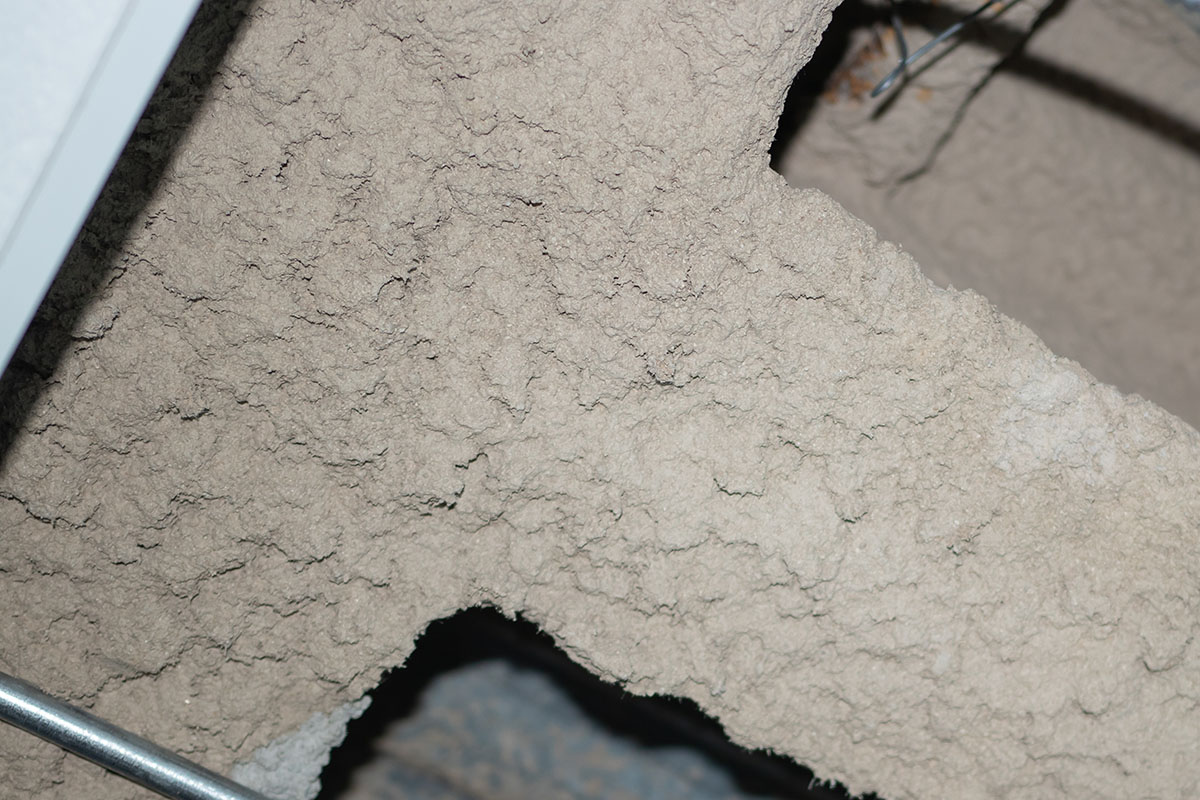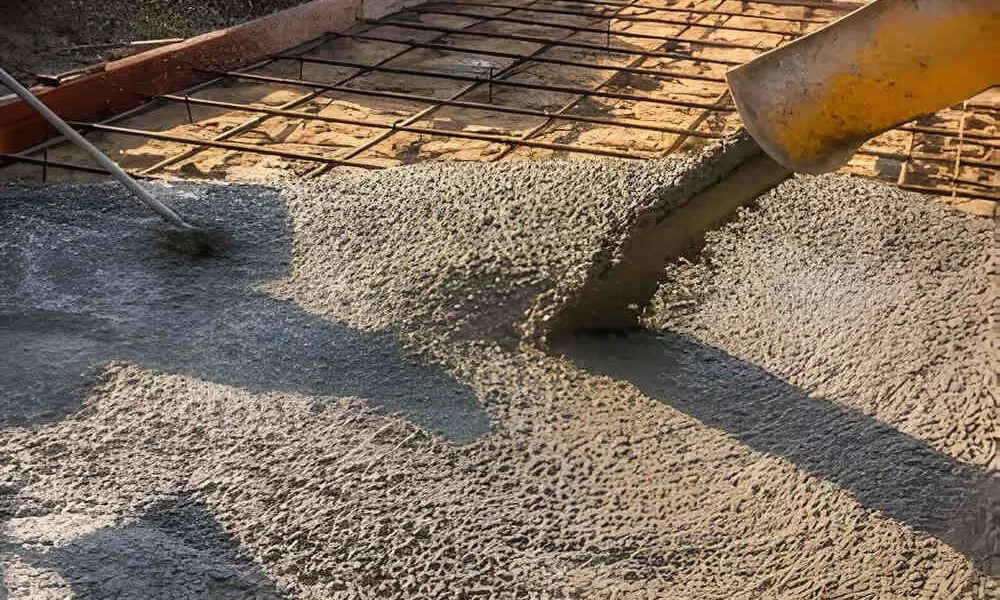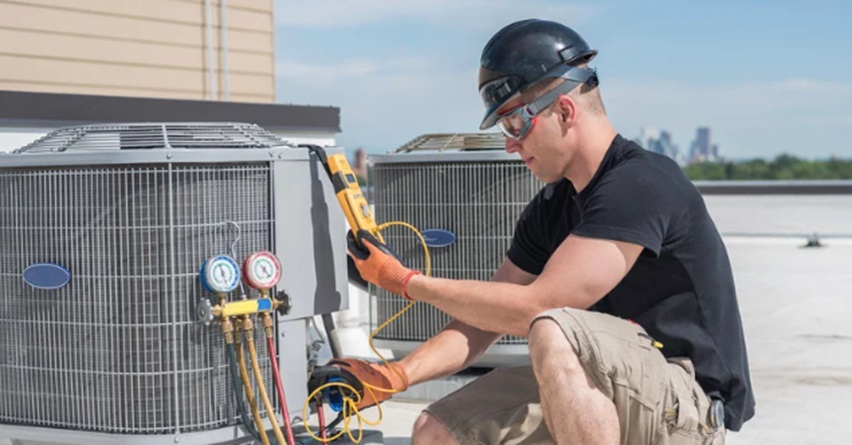What is Asbestos?
Asbestos is a group of minerals made of tiny fibers. These fibers are strong and resistant to heat, which is why they were used in many building materials. However, asbestos can be very dangerous when it breaks down into dust and is inhaled.
Common Uses of Asbestos in Homes
Asbestos was often used in:
- Insulation materials
- Floor tiles
- Roofing shingles
- Textured paints
- Pipe insulation
These materials can still be found in homes built before the 1980s, making it important for homeowners to be aware of their presence.
Health Risks Associated with Asbestos Exposure
Exposure to asbestos can lead to serious health problems, including:
- Lung cancer
- Mesothelioma (a type of cancer affecting the lining of the lungs)
- Asbestosis (a chronic lung disease)
Even small amounts of asbestos can be harmful, especially if someone is exposed over a long time. It is crucial to understand these risks to protect oneself and others.
Why Veterans Are at Higher Risk of Asbestos Exposure
Military Use of Asbestos
Veterans often face a higher risk of asbestos exposure due to its widespread use in military settings. Asbestos was commonly used in:
- Shipbuilding materials containing asbestos, including insulation and fireproofing.
- Construction of military bases, where it was used in walls, ceilings, and flooring.
- Protective gear, such as gloves and suits, which were designed to withstand high temperatures.
Veterans’ Occupations and Asbestos Exposure
Many veterans worked in jobs that put them in direct contact with asbestos. Common occupations include:
- Mechanics, who often worked on vehicles with asbestos components.
- Construction workers, who handled materials containing asbestos.
- Maintenance personnel, who dealt with older buildings that may have asbestos in their structures.
Long-Term Health Effects on Veterans
The long-term health effects of asbestos exposure can be severe. Veterans may experience:
- Chronic respiratory issues, such as asthma or chronic obstructive pulmonary disease (COPD).
- Asbestos-related diseases, including mesothelioma and lung cancer.
- A significant decline in quality of life due to ongoing health problems.
Identifying Asbestos in Your Home
Signs of Asbestos Presence
Identifying asbestos in a home can be challenging, as it is often hidden in various materials. Here are some signs that may indicate its presence:
- Age of the Home: Homes built before the 1980s are more likely to contain asbestos.
- Renovation History: If the home has undergone renovations, especially in older buildings, asbestos may have been disturbed.
- Material Types: Look for materials like old insulation, floor tiles, or textured ceilings that may contain asbestos.
Common Areas to Check for Asbestos
Certain areas in a home are more likely to have asbestos. Homeowners should pay special attention to:
- Basements: Insulation around pipes and boilers.
- Attics: Insulation materials and roofing shingles.
- Bathrooms: Old tiles and caulking around tubs and sinks.
Professional Asbestos Inspection Services
If there is a suspicion of asbestos, it is crucial to seek professional help. Here are steps to take:
- Hire a Certified Inspector: Look for professionals who are trained in asbestos detection.
- Get Samples Tested: Professionals can take samples and send them to a lab for analysis.
- Follow Recommendations: Based on the results, follow the expert’s advice on how to proceed.
Health Implications of Asbestos Exposure for Veterans
Respiratory Issues
Veterans exposed to asbestos often face serious respiratory problems. These issues can include:
- Shortness of breath: Difficulty in breathing, especially during physical activities.
- Chronic cough: A persistent cough that does not go away.
- Wheezing: A high-pitched sound when breathing, indicating blocked airways.
Asbestos-Related Diseases
Asbestos exposure can lead to several dangerous diseases, including:
- Asbestosis: A lung disease caused by inhaling asbestos fibers, leading to scarring of lung tissue.
- Mesothelioma: A rare cancer that affects the lining of the lungs and abdomen, primarily linked to asbestos exposure.
- Lung cancer: Increased risk of developing lung cancer, especially among smokers who have been exposed to asbestos.
Impact on Quality of Life
The health effects of asbestos exposure can significantly affect a veteran’s daily life. This impact can manifest in various ways:
- Physical limitations: Reduced ability to perform everyday tasks due to health issues.
- Emotional distress: Anxiety and depression stemming from health concerns and lifestyle changes.
- Financial burden: Increased medical costs and potential loss of income due to illness.
Steps to Take if You Suspect Asbestos in Your Home
Immediate Actions to Protect Your Family
If there is a chance that asbestos is present in your home, it is crucial to act quickly to ensure the safety of your family. Here are some steps to follow:
- Avoid Disturbing the Area: Do not touch or disturb any materials that you suspect may contain asbestos. This can release harmful fibers into the air.
- Seal Off the Area: If possible, close doors and windows to the area where you suspect asbestos is located. This helps to prevent the spread of any fibers.
- Inform Household Members: Make sure everyone in your home is aware of the potential danger and instruct them to stay away from the area.
Contacting Asbestos Professionals
Once you have taken immediate safety measures, it is important to reach out to professionals who can help:
- Hire a Certified Asbestos Inspector: A trained expert can assess your home and determine if asbestos is present.
- Get a Written Report: After the inspection, request a detailed report outlining the findings and recommendations for next steps.
- Discuss Removal Options: If asbestos is found, talk to the professionals about safe removal or abatement options.
Legal and Financial Assistance
Veterans may have access to various resources to help with asbestos-related issues:
- Explore VA Benefits: Check if you qualify for any benefits related to asbestos exposure.
- Consult Legal Experts: If you believe you have been harmed by asbestos, consider speaking with a lawyer who specializes in this area.
- Look for Support Groups: Connecting with others who have faced similar situations can provide emotional support and practical advice.
Safe Asbestos Removal and Abatement
Hiring Certified Asbestos Removal Services
When dealing with asbestos, it is crucial to hire professionals who are trained and certified in asbestos removal. These experts have the right tools and knowledge to safely handle and dispose of asbestos materials. Here are some key points to consider:
- Certification: Ensure the company is licensed and follows local regulations.
- Experience: Look for companies with a proven track record in asbestos abatement.
- Insurance: Verify that the service provider has liability insurance to protect against any accidents.
DIY Asbestos Removal: Risks and Precautions
While some may consider removing asbestos themselves, this can be very dangerous. Here are some risks and precautions to keep in mind:
- Health Risks: Disturbing asbestos can release harmful fibers into the air, posing serious health risks.
- Proper Gear: If attempting DIY, use protective clothing, masks, and equipment to minimize exposure.
- Legal Issues: Be aware of local laws regarding asbestos removal, as improper handling can lead to fines.
Post-Removal Safety Measures
After asbestos has been removed, it is important to take steps to ensure the area remains safe. Consider the following measures:
- Air Quality Testing: Conduct tests to confirm that no asbestos fibers remain in the air.
- Regular Inspections: Schedule follow-up inspections to monitor the area for any signs of asbestos re-emergence.
- Educate Family Members: Inform everyone in the household about the importance of avoiding disturbed areas and recognizing potential hazards.
Veterans’ Benefits and Resources for Asbestos Exposure
VA Health Care for Asbestos-Related Conditions
Veterans who have been exposed to asbestos may qualify for health care services through the Department of Veterans Affairs (VA). This includes:
- Regular check-ups for monitoring health.
- Specialized treatments for asbestos-related diseases.
- Access to mental health services for emotional support.
Filing for Disability Compensation
Veterans can file for disability compensation if they suffer from health issues linked to asbestos exposure. The process includes:
- Gathering medical records that show the connection between service and health problems.
- Submitting a claim to the VA with all necessary documents.
- Waiting for a decision from the VA, which may take several months.
Support Groups and Counseling
Many veterans find comfort and assistance through support groups. These groups offer:
- Shared experiences with others who understand the challenges.
- Counseling services to help cope with the emotional impact of asbestos exposure.
- Information on resources available for veterans dealing with similar issues.
Preventing Asbestos Exposure in Older Homes
Home Renovation Precautions
When renovating an older home, it is crucial to take specific steps to avoid asbestos exposure. Here are some important precautions:
- Get a Professional Inspection: Before starting any renovation, hire a certified inspector to check for asbestos.
- Avoid Disturbing Materials: If you suspect materials contain asbestos, do not touch or disturb them. This can release harmful fibers into the air.
- Use Protective Gear: If you must work in areas where asbestos might be present, wear appropriate protective equipment, such as masks and gloves.
Regular Home Inspections
Regular inspections can help identify potential asbestos hazards. Consider the following:
- Schedule Routine Checks: Have professionals inspect your home every few years, especially if it was built before the 1980s.
- Check for Damage: Look for signs of wear and tear in insulation, ceilings, and flooring that may indicate asbestos presence.
- Document Findings: Keep records of inspections and any materials that may contain asbestos for future reference.
Using Asbestos-Free Materials
When making repairs or renovations, opt for safer alternatives:
- Choose Modern Materials: Use products that are labeled as asbestos-free.
- Educate Yourself: Learn about safe building materials and their benefits.
- Consult Experts: Seek advice from professionals about the best materials to use in your home renovations.
Legal Rights of Veterans Affected by Asbestos
Understanding Your Legal Options
Veterans who have been exposed to asbestos have specific legal rights. These rights can help them seek compensation and support. Here are some key options:
- Filing a Claim: Veterans can file claims for benefits through the Department of Veterans Affairs (VA) if they have health issues related to asbestos exposure.
- Legal Representation: It is advisable for veterans to seek legal help from attorneys who specialize in asbestos cases. They can guide veterans through the process and help them understand their rights.
- Class Action Lawsuits: In some cases, veterans may join class action lawsuits against companies that manufactured or used asbestos products. This can increase their chances of receiving compensation.
Filing a Lawsuit for Asbestos Exposure
If a veteran decides to take legal action, they may consider filing a lawsuit. Here are some important points to remember:
- Time Limits: There are deadlines for filing lawsuits, known as statutes of limitations. Veterans should act quickly to ensure they do not miss these deadlines.
- Proving Exposure: Veterans must provide evidence of their asbestos exposure and related health issues. This may include medical records and documentation of their military service.
- Potential Compensation: Successful lawsuits can lead to compensation for medical expenses, lost wages, and pain and suffering.
Compensation and Settlements
Veterans affected by asbestos may be entitled to various forms of compensation. Here are some common types:
- Disability Benefits: Veterans can receive monthly payments if they are deemed disabled due to asbestos-related conditions.
- Medical Coverage: The VA may cover medical expenses related to asbestos exposure, including treatments and medications.
- Settlement Offers: In some cases, companies may offer settlements to avoid lengthy court battles. Veterans should carefully consider these offers with legal advice.
Raising Awareness About Asbestos Risks Among Veterans
Educational Programs and Workshops
To help veterans understand the dangers of asbestos, various educational programs and workshops can be organized. These initiatives can include:
- Informative Sessions: Presentations that explain what asbestos is and its health risks.
- Hands-On Training: Workshops that teach veterans how to identify asbestos in their homes.
- Resource Distribution: Providing pamphlets and guides that veterans can take home for further reading.
Community Outreach Initiatives
Community outreach is essential in spreading awareness about asbestos risks. Some effective strategies include:
- Local Events: Hosting community fairs where veterans can learn about asbestos and its dangers.
- Partnerships with Local Organizations: Collaborating with veteran groups to reach a wider audience.
- Social Media Campaigns: Using platforms to share information and personal stories about asbestos exposure.
Advocacy for Policy Changes
Advocacy plays a crucial role in ensuring that veterans are protected from asbestos exposure. Key actions include:
- Lobbying for Stronger Regulations: Pushing for laws that limit asbestos use in homes and buildings.
- Raising Funds for Research: Supporting studies that focus on the long-term effects of asbestos on veterans.
- Engaging Lawmakers: Encouraging veterans to speak with their representatives about the need for better protections.
Case Studies: Veterans Affected by Home Asbestos
Personal Stories of Asbestos Exposure
Many veterans have shared their experiences with asbestos in their homes. These stories highlight the dangers they faced:
- John, a Navy Veteran: After returning home, John discovered that his house had asbestos insulation. He experienced breathing problems and later learned that it was linked to his exposure.
- Mary, an Army Veteran: Mary renovated her home and found asbestos tiles. She had no idea about the risks and suffered from severe respiratory issues afterward.
- Tom, a Marine Veteran: Tom’s family home contained asbestos in the walls. He was diagnosed with an asbestos-related disease years later, which he believes was caused by the fibers in his home.
Lessons Learned from Past Cases
These cases teach important lessons about asbestos:
- Awareness is Key: Veterans must be informed about the risks of asbestos in older homes.
- Regular Inspections: Home inspections can help identify asbestos before it becomes a serious problem.
- Seek Help: If asbestos is found, contacting professionals is crucial for safe removal.
Preventive Measures Taken by Veterans
Veterans have taken steps to protect themselves and their families:
- Educating Themselves: Many veterans are now learning about asbestos and its dangers.
- Home Renovation Caution: They are more careful during home renovations, ensuring to check for asbestos.
- Community Involvement: Some veterans are joining local groups to raise awareness about asbestos risks.












